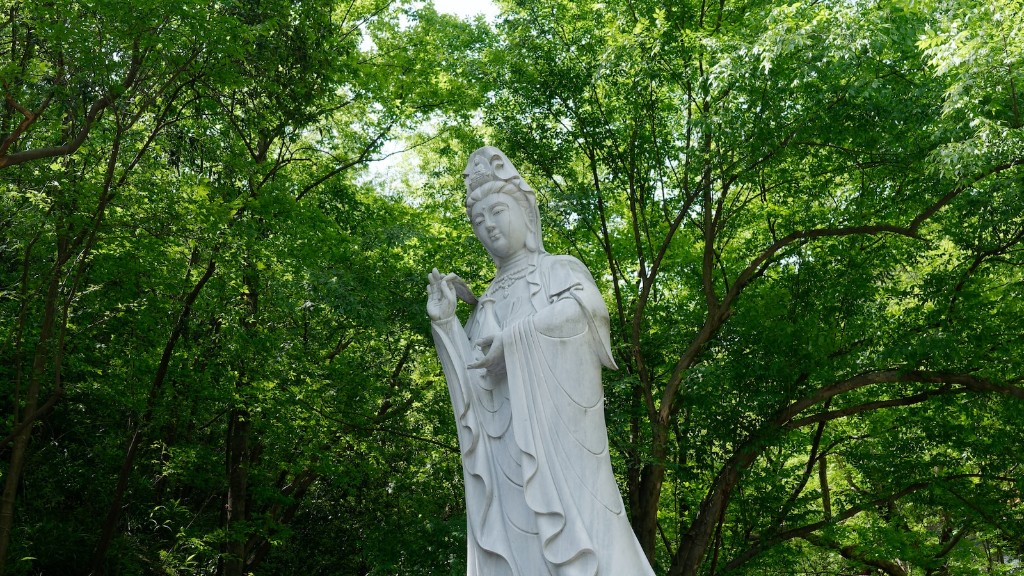Belief in the Afterlife in Judaism
Judaism is a monotheistic religion which is based on the concept of the covenant between God and humanity. As part of its core belief system, Judaism strongly believes in the concept of the afterlife. It is believed that when a person dies, their soul goes to a spiritual world that is beyond the physical one. This afterlife is considered to be a reward for those who have lived a righteous life.
The belief in the afterlife and what it entails is central to the Jewish faith. This belief is outlined in the Torah, the Bible, and in many other books of the Jewish scriptures. It is believed that the afterlife is a place of rest, peace and reward for those who have led a just and righteous life. It is believed that those who have lived a sinful life will face judgement and punishment.
One way to understand the afterlife, which is mentioned in the Torah and other sacred texts, is to consider it as a state of being in which each individual soul is reunited with God. It is seen as the ultimate reward, a place where souls go to be redeemed and live in perfect harmony and love.
The afterlife is also viewed in more practical terms, as a way to ensure a continuation of the Jewish people and their culture. It is believed that the souls of Jews who have died remain connected to their descendants and take an active part in their lives. It is believed that the souls of Jews can make life easier for the living by offering guidance and support.
This belief in the afterlife is connected to a belief in reincarnation. It is believed that souls can be reborn in this world, and that they will have the opportunity to continue to pursue justice and righteousness. This belief also connects to the concept of resurrection, which is seen as a sign of hope and a way of affirming the power of God in the world.
In Judaism, there is also a belief in the Day of Judgment. It is believed that on this day, all souls will be judged and it is they who will decide their fate. Those who have lived a good life will be rewarded and those who lived a sinful life will be punished.
Divine Providence
Aside from the belief in the afterlife, Judaism also has a belief in divine providence. This belief is based on the idea that God is carefully guiding humanity from the moment of creation. It is seen as a reminder that no matter what life throws at us, God is there to guide us in the direction that is best for us.
As part of the belief in divine providence, it is believed that everything that happens in this life is a result of God’s will. This includes both the good and the bad, the happy and the sad. Every event, no matter how insignificant, is seen as part of a divine plan – part of a greater picture.
This belief in divine providence is closely connected to the concept of reincarnation. It is believed that reincarnation is part of God’s plan; that souls are reincarnated as part of a larger journey, and that each lifetime is a chance to grow and transform. It is believed that the souls of humans who have died continue to influence the lives of their descendants.
This belief in divine providence is also closely connected to the concept of free will. Despite this belief in a greater plan being in place, each individual has the power to make their own choices and to shape their own destiny. It is seen as a reminder of the power that each individual has.
The Concept of Sin and Redemption
In Judaism, there is also a belief in the concept of sin and redemption. It is believed that all human beings have the capacity to make mistakes and to sin. However, at the same time, we have the capacity to find redemption – to make things right and to be forgiven by God. This belief allows people to reflect on their actions and to seek forgiveness from God and from one another, which is seen as a key part of living a life of faith.
It is also believed that sin can be a catalyst for growth, as it allows us to reflect on our mistakes and to learn from them. It is believed that even when we make mistakes, God is still present, still guiding us and still offering us redemption.
The concept of sin and redemption has been central to the Jewish faith for centuries, and is still seen as one of the primary principles of faith today. It is seen as a reminder that, despite our failings, God is still there and is willing to offer us redemption and guidance if we seek it.
Souls of the Righteous
Another belief found in Judaism is that of the souls of the righteous. This is a belief that those who have lived a life of righteousness have their souls bound up with God, and that they continue to exist in a spiritual world even after death. It is believed that these souls are able to return to help those who are still alive, and that they can offer guidance or influence particular events or people.
This belief has been particularly important in Jewish theology, and is seen as a reminder of the importance of righteousness. It is believed that those who have led a righteous life continue to exist in an afterlife, where they can play an active role in life on earth.
Souls of the righteous are said to exist both outside of time, and also play an active role in life on earth. They are said to act as messengers of God in the world, offering guidance and support for those who are still alive. They are believed to be a source of wisdom, strength and comfort for those who are seeking God’s help.
Prayers for the Dead
In Judaism, there is also a belief in prayer for the dead. This belief is based on the idea that prayers can be offered up on behalf of those who have passed away, and that these prayers can help them in the afterlife. This belief is seen as an important part of the faith as it shows respect and care for those who have died.
These prayers are said to bring comfort to the souls in the afterlife, as well as offering comfort to those who are still living. It is believed that the prayers of the living can help the deceased to enter into a higher realm, and to receive forgiveness from God. It is also seen as a source of strength and hope for the living, providing support and reassurance even in times of grief.
Resurrection
The belief in resurrection is also important in Judaism. This is the belief that after death, all souls will be resurrected and will stand before God for judgement. It is a sign of hope and faith in the afterlife, as it suggests that after death, there is still an opportunity to be saved and to be reunited with the divine. This belief is connected to the belief in God’s ultimate plan, as it suggests that no matter what happens in life, God will ultimately bring justice and peace in the end.
Resurrection is also seen as a sign of hope and transformation. It suggests that no matter what we face in life, no matter how far we have strayed, there is still a chance of redemption and salvation if we seek it. This belief also suggests that death is not the end of life, but rather the beginning of a new journey towards salvation.
The concept of resurrection is also connected to the concept of justice. It is seen as a sign of the power of God in the world, as it suggests that God is ultimately responsible for justice and that those who have done wrong will be punished, while those who have done right will be rewarded.
Conclusion
Judaism is a religion with a strong belief in the afterlife. It believes that when a person dies, their soul goes to a spiritual world beyond the physical one and is reunited with God. It is believed that there, they will receive the ultimate reward or punishment depending on their actions in this life. This belief is central to Judaism and is connected to many other core beliefs, including the belief in divine providence, the concept of sin and redemption, and the belief in the souls of the righteous. Additionally, there is a belief in resurrection, which is a sign of hope and faith in the afterlife. All of these beliefs combine to form an important part of the Jewish faith and are essential to the way that Judaism is practiced today.



